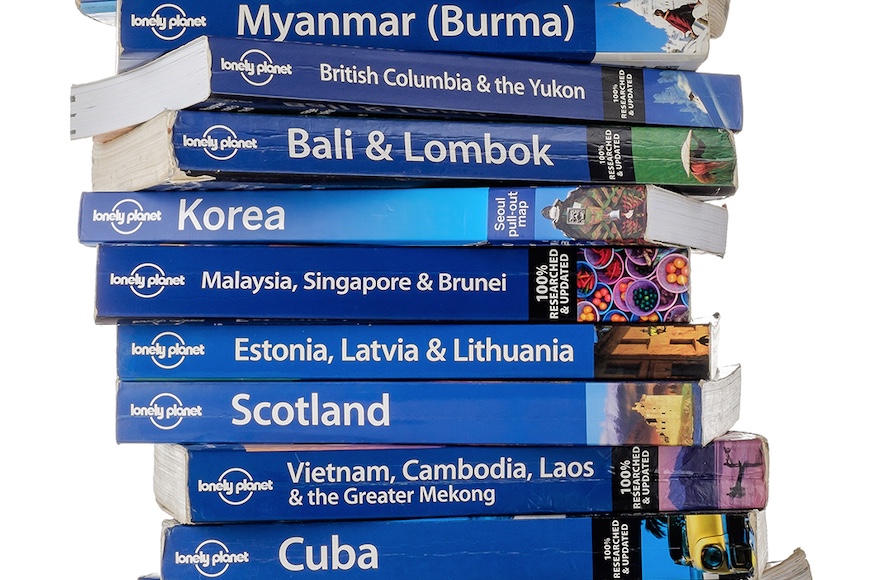When considering travel, our fist logical step is to reach for a guide book or in today’s travel environment, look online or follow a blog. However, do we need them and how much do the inspire or curb our adventurous spirit?
For a long time, guidebooks were absolutely essential for any traveller. If you were off on holiday, especially to a place you didn’t know, a guidebook was invaluable – they are full of information, phrases, history, and anything else you could require. But now, much of this information is available online and easy to access, and it feels like younger travellers gravitate towards their phones rather than a book. So, for the contemporary traveller, are guidebooks outdated, or do they still have their uses?
Guidebooks provide a vast range of information when planning a trip. Blogs will give you a good overview, but guide books go into language, history, food and culture in much more depth. And you can locate it all in one place.
Travel guides have existed since humans began exploring the world,with the oldest known example being in 1442. Explorers compiled guides, with information to help pilgrims navigate their travels.
There was a boom in guidebook sales such as the Lonely Planet series in the 1990s, as backpackers headed off on their travels – these were essential tools in this immediate period before the age of the internet.
A number of independent guidebook publishers sold up, seeing the writing on the wall, although sales have now increased since the pandemic and travel restrictions have eased.
Many travellers are dedicated fans of a physical book. They love the feeling of having it in their hands, being able to thumb through it and discover new information. With a physical book, you can mark things with a pen, bend corners, use sticky notes, and have that information on hand anywhere you have the guide. It makes the experience more personal, somehow, and the guidebook transforms into a souvenir when your journey is over.
Learn about your destination before you go
An online travel guide is a great tool for gaining an understanding of a destination before you travel there. These guides typically include information about a variety of different aspects of the destination, from its geography and culture to the best restaurants and attractions to visit. Additionally, many travel guides also include user reviews, giving you a chance to get first-hand insights into the experience of others who have visited the location. By reading through an online travel guide, you can learn about all the highlights and hidden gems that your destination has to offer, helping you to craft a travel itinerary that is perfectly suited to your interests and travel style. Whether you want to explore ancient ruins or sample some local cuisine, with an online travel guide at your fingertips, you can feel confident heading into your trip with all the knowledge you need.
Save money by planning your trip yourself
An online travel guide can save you money by helping you plan your trip yourself. By providing you with information on things to do, see, and eat at your destination, a travel guide can help you make the most of your trip by avoiding expensive tourist traps. In addition, a travel guide can help you find cheaper travel options and accommodation. By taking the time to research your destination and plan your trip carefully, you can save a significant amount of money. So, if you’re looking to save money on your next trip, consult an online travel guide before you book anything.
The internet is a helpful source but not a perfect one
To be fair, the Internet has a variety of strengths over travel guidebooks:
• Hotel listings, descriptions, photos and online bookings
• Information on restaurants (menu, hours, location) and online reservations
• Guided tours available and online bookings
• Personal experiences/reviews from individual travelers
For accommodations, the internet has clearly become a better choice than guidebooks. The descriptions are better, there are lots of photos, you have more reviews to peruse, and you can make your booking on-the-spot.
Where do travel blogs feature in reliable information about a destination? Travel guidebooks help you discover less-touristed attractions. Travel blogs have less incentive to write about less-touristed attractions because people don’t search for them online. No searches means no traffic, which means no money, so they focus on the most well-known and highest-searched attractions.
The first benefit of using travel blogs to plan your trip, is that you can be super-specific in searching for content that is relevant to you.
A travel guidebook has to try and cover off all bases, so will generally end up in the middle-ground, trying to please as many people with its information as possible.
The majority of travel bloggers are independent, and blog about travel in their spare time. Of course, there are the elite guys at the top who make a living from it, but most of us are doing this as a hobby rather than a business venture.
It is common practice in the travel industry for people to accept free trips in exchange for writing an article, or to be under pressure from their publication to produce a certain type of content. Therefore, it is sometimes difficult to work out what a truthful opinion is. Some bloggers do this too, but they should make this absolutely clear on their site in line with FTC regulations.
The multitude of ways we can find travel information is a positive plus whilst planning our travels. Whether it is a guidebook, blog or internet information, they can all contribute to a better informed experience. However, our own personal expectations and excitement regarding travel cannot be found in any form of guide – only in our imagination.








